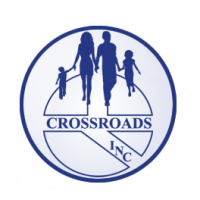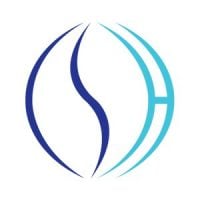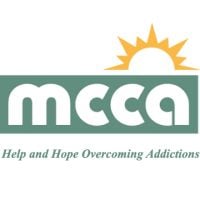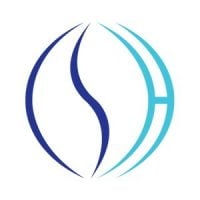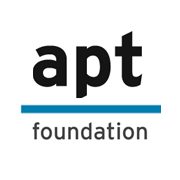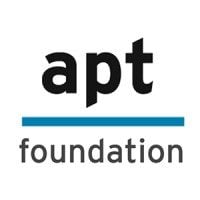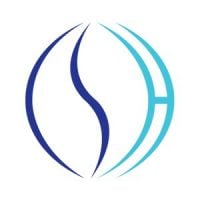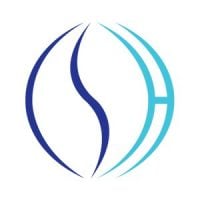Crossroads Amethyst House
Drug Rehab Center in New Haven, Connecticut
Crossroads Amethyst House is an accredited addiction treatment facility in New Haven, CT providing residential and outpatient levels of care for opioid addiction, substance abuse, dual diagnosis, and drug addiction, as well as aftercare support and private health insurance.
Multiple patients have reported Crossroads Amethyst House as permanently closed.
Research other rehabs in New Haven, Connecticut, or get help finding an open facility.
About This Connecticut Facility
Crossroads Amethyst House is a reputable Addiction Treatment Facility located in New Haven, Connecticut. Accredited by CARF, an independent, non-profit organization that ensures quality standards in the addiction treatment field, Crossroads Amethyst House is committed to providing top-notch care to individuals suffering from opioid addiction, substance abuse, dual diagnosis, and drug addiction. Their comprehensive services include aftercare support, drug rehab, dual-diagnosis treatment, and residential levels of care. By offering a range of treatment options, Crossroads Amethyst House strives to meet the unique needs of each individual to support their recovery journey.
At Crossroads Amethyst House in New Haven, patients can expect to receive a diverse array of services aimed at addressing addiction and substance abuse. With a focus on providing holistic care, their team of professionals offers evidence-based therapies, counseling sessions, and educational programs to help individuals gain a deeper understanding of their addiction and develop the necessary skills for long-term recovery. Their aftercare support ensures that patients have continued guidance and assistance even after completing their initial treatment. With a strong emphasis on dual-diagnosis treatment, Crossroads Amethyst House recognizes the importance of addressing co-occurring mental health conditions alongside addiction. Through their residential levels of care, individuals receive round-the-clock support and a structured environment conducive to healing and growth.
Genders
Ages
Modality
Additional
Accreditations

CARF
The Commission on Accreditation of Rehabilitation Facilities (CARF) is a non-profit organization that specifically accredits rehab organizations. Founded in 1966, CARF's, mission is to help service providers like rehab facilities maintain high standards of care.
Conditions and Issues Treated
The inappropriate use of any drug in New Haven, CT is substance abuse. This involves alcohol, medications, and illicit drugs. With a combination of physical and psychiatric therapies, drug addiction is successfully treated at Crossroads Amethyst House. After Detox is complete, individuals follow-up with treatments treating the root cause of the addiction.
Opioid Addiction Treatment supports people recovering from addiction to prescription drugs as well as illegal opioids. This is a hospital-based or residential treatment. Depending upon one’s age, detox without the appropriate medication may be unpleasant or even dangerous–some get body aches, fever, chills, while others may even have seizures.
Opioid treatment involves medically assisted detox, physical and mental support. Most rehabilitations use an array of treatments to ensure overall wellbeing, such as Medication-assisted therapy (MAT) in which one gets behavioral therapy, medicines, and counseling. A client-centered approach can reduce one’s chances of relapse. Therapists at work with the client to figure out environmental and behavioral triggers, giving them the power to change the patterns.
Levels of Care Offered at Crossroads Amethyst House
This center offers a variety of custom treatment tailored to individual recovery. Currently available are Aftercare Support, Drug Rehab, Dual-Diagnosis, Residential, with additional therapies available as listed below.
Residential treatment programs are those that offer housing and meals in addition to substance abuse treatment. Rehab facilities that offer residential treatment allow patients to focus solely on recovery, in an environment totally separate from their lives. Some rehab centers specialize in short-term residential treatment (a few days to a week or two), while others solely provide treatment on a long-term basis (several weeks to months). Some offer both, and tailor treatment to the patient’s individual requirements.
Treatment for substance abuse does not cease after an individual successfully completes a detox or rehabilitation program. A vital follow-up treatment service is aftercare support provided to individuals at Crossroads Amethyst House in Connecticut after they attain initial sobriety.
Aftercare support often takes the following forms: 12-Step Programs, Outpatient Treatment Programs, and Support Groups. The most effective aftercare programs are tailored to meet an individual’s specific needs and circumstances.
Therapies & Programs
Addiction and alcoholism always harm an addict’s relationships with others and none more than relationships with a spouse or partner. Couples therapy is an essential part of restoring trust and good communication to intimate relationships harmed by addiction. Couples therapy by Crossroads Amethyst House helps repair the damage done to these important relationships.
Recovery can be more effective if the entire family’s involved. Family therapy hosted by Crossroads Amethyst House brings in the addict’s family to explore genetic factors. It gives loved ones the tools for dealing with addiction and its underlying mental issues. It is a recommended step in helping addicts adapt to sober living.
Trauma is one of the most common causes of psychological disorders. It’s often found in people with addiction diagnoses. Trauma therapy addresses this by examining the emotions and thoughts people have formed due to past traumas. Traumas are complex but trauma therapy can reduce their ability to contribute to addictive behaviors.
Dialectical Behavioral Therapy is a form of Cognitive Behavioral Therapy. It is designed for those who are prone to self-harm and suicidal behaviors. Crossroads Amethyst House aims to help patients understand the relationship between their thoughts, feeling and behaviors and it gives them the tools to make a change. It is effective for those whose addictions and behaviors stem from extreme mental health issues.
A 12-Step Program is a common method that is used to treat addiction. This format is used for both drug and alcohol treatment. It is extremely popular and successful for large numbers of people and the staff at Crossroads Amethyst House are trained to assist in 12-step management.
Contingency Management (CM), also known as motivational incentives or prize method, is a behavioral therapy type. It is based on the principle that their consequences influence the behaviors of an individual. So, it promotes the desired behavior by giving rewards while discouraging the unwanted behaviors by withholding the rewards or even by giving punishments. One of the expected desired behavior is the absence of drug in a toxicology screen, and the rewards vary from prize or vouchers, to experiences. CM is used for individuals who need therapy for more than 3 months, and it has the advantage of being implemented by family members.
Payment Options Accepted
For specific insurance or payment methods please contact us.
Is your insurance accepted?
Ask an expert, call (888) 674-0062
Additional Details
Specifics, location, and helpful extra information.
New Haven, Connecticut 6515 Phone Number203-821-3040 x193 Meta DetailsUpdated November 25, 2023
Staff Verified
Patient Reviews
There are no reviews yet. Be the first one to write one.
New Haven, Connecticut Addiction Information
Connecticut has a higher rate of substance abuse and addiction than the national average. The state ranks in the top 10 in the country for illicit drug dependence among those ages 18 to 25. In 2010, there were 9,211 people admitted to an alcohol treatment facility for alcohol abuse combined with a secondary drug. Connecticut ranked fifth in the United States of America for the number of fatalities involving drunk driving in 2014.
There are 9,000 people addicted to drugs in New Haven, Connecticut. The most common drugs are methamphetamines and marijuana. Alcohol is also abused by many residents. 20% of Connecticut residents have a substance abuse disorder, and 28,409 people died from drug overdoses in 2015. Drug treatment centers in New Haven, CT, offer detoxification. The therapeutic portion of treatment may involve individual counseling, group therapy, and recreational activities.
Treatment in Nearby Cities
- Kent, CT (37.6 mi.)
- Old Lyme, CT (33.5 mi.)
- Wilton, CT (26.0 mi.)
- Hamden, CT (5.0 mi.)
- Sharon, CT (45.8 mi.)
Centers near Crossroads Amethyst House
The facility name, logo and brand are the property and registered trademarks of Crossroads Amethyst House, and are being used for identification and informational purposes only. Use of these names, logos and brands shall not imply endorsement. RehabNow.org is not affiliated with or sponsored by Crossroads Amethyst House.


